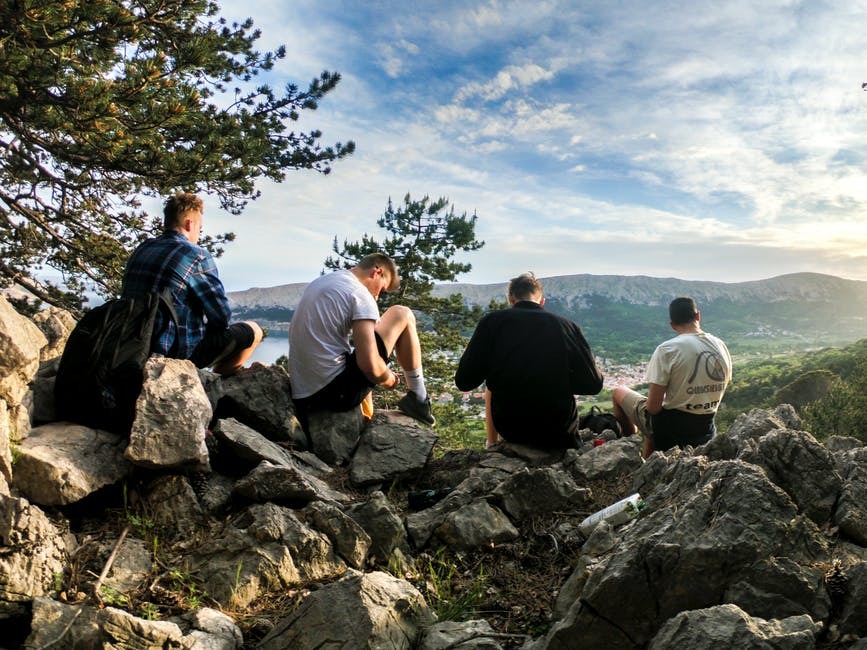
Outdoor and adventure therapies combine the interest of being outdoors and the added benefits of having fun and risk-taking that appeal to many adolescents with substance use and mental health disorders. Being in nature also provides an optimal therapeutic background, creating settings that are calm, provide physical activity, and plenty of opportunities for both individual and group therapy.
Why Choose Outdoor Therapy?
Outdoor therapy can consist of almost any therapy that is done outdoors, including hiking, gardening, animal therapy, and many more rigorous types of physical activities. Being outside and interacting with nature helps relieve stress, provides a mentally calming effect, and can help teens connect with nature or even their spirituality.
Providing a literal change of scenery for your clients can help to enhance the groundwork that you have already created within traditional therapy or can help treatment-resistant clients open up when they get outdoors. Because outdoor therapy provides a new environment and fun activities, adolescents frequently respond differently than they do in traditional settings. Clients can demonstrate increased self-worth, better social skills, and lower stress levels.
How Does Wilderness Therapy Work?
Wilderness therapy involves adolescents participating in a small group, typically in a remote wilderness setting with minimal amenities. Participants learn basic self-care and survival skills in a hands-on outdoor setting while also receiving treatment and therapy for addiction and mental health issues. They learn responsibility, develop self-confidence and coping skills, and strengthen relationships all while improving mental and physical health.
Programs vary widely, but according to the U.S. Department of Agriculture, wilderness programs are built upon three basic phases. The first is a cleansing phase, similar to detox in a residential setting, but this phase also includes learning basic survival and self-care skills. The second phase is the personal and social responsibility phase, in which the majority of the program centers around teaching adolescents self-care, personal responsibility, social skills, and appropriate interpersonal communication through the natural wilderness environment. Finally, there is a transition and aftercare phase to help them apply what they have learned to the real world and transition back home.
What Types of Adventure Therapy Can Help Teens?
Adventure therapy can be very appealing to teens who enjoy risk-taking and can help shy teens become more self-confident. These types of outdoor therapies typically involve taking physical and emotional risks, which can lead to more self-efficacy and a greater sense of accomplishment.
Types of adventure therapy include rock climbing, spelunking, white water rafting, snow camping, surfing, kayaking, skiing, mountain biking, backpacking, and more. Participants learn problem-solving skills, gain self-awareness, develop trust and cooperation, improve their resilience, and increase mental and physical strength while also gaining the basic benefits of being outdoors.
The Lasting Value of Outdoor Therapy
Many outdoor therapy programs have traditionally been for cash-paying customers only, which often prevents a large number of clients from having access to these programs. In an effort to demonstrate the efficacy of outdoor treatment for purposes of insurance and government funding, one 2019 study compared the costs and benefits of traditional treatment, outdoor therapy, and no structured treatment for teens with substance use disorders and comorbid conditions.
The study found that incorporating outdoor therapy created longer-lasting benefits, including a lower cost/benefit ratio, and a higher program completion rate than traditional treatment only. Outdoor therapy engages and increases the effectiveness of treatment for teens. Thus, using or supplementing with outdoor therapy can have lasting benefits for adolescents and actually cost less than traditional residential treatment alone.
Why Adolescents Benefit From Being Outdoors
Outdoor therapy helps adolescents become engaged in their own treatment process by engaging their minds and bodies in activities that are fun and exciting. Being in nature helps to calm them and reconnect them with their bodies and their spirits after being disconnected in active addiction. For teens who are treatment-resistant, outdoor and adventure therapy helps them forget that they are in therapy and helps them feel more like human beings again. Being outdoors takes the focus away from the fact that they are in treatment and gives them more freedom to grow and heal.
From a therapeutic standpoint, outdoor and adventure therapy offers increased efficacy in the areas of self-confidence, emotional resilience, trust-building, social skills, interpersonal communication, life skills, stress reduction, and more. Benefits are longer lasting as skills are developed in real-life settings and therapeutic opportunities are created organically. Clients are empowered by the challenges that nature provides them and often progress more quickly and powerfully than in traditional settings. Taking adolescents into the outdoors expands their worlds.
Outdoor and adventure therapy provide unique opportunities for personal growth, improved self-confidence and resilience, and powerful therapeutic experiences. Adolescents respond well to being in an outdoor environment and show great success in completing wilderness and adventure therapy programs. Particularly when outdoor and adventure therapy is used in conjunction with other therapeutic modalities, clients can experience sustained success in their recovery. At Sustain Recovery, we offer extended residential care to adolescents with substance use and mental health diagnoses. Our program, located in Irvine, California, is unique in that it offers clients the opportunity to transition back home gradually. We also help them connect with support in their community for long-term success. We teach independence and accountability in a structured environment with staff who are passionate about what they do. If you have a client who might benefit from our program, call Sustain at (949) 407-9052 to learn more.






